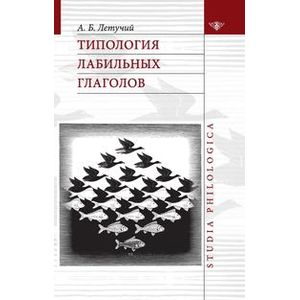Typology of labile verbs
Please sign in so that we can notify you about a reply
In the book on typological material, labile verbs are investigated - verbs that can be transitional and non -transitional without changing the form. Laststream has not yet been fully studied by linguistics. It is often believed that labile verbs are a phenomenon that is characteristic, first of all, for English and Caucasian languages. The monograph showed that this is not so: in the languages of a variety of areas and genetic affiliation there are labile verbs. Interestingly, in different languages and groups of languages, different groups of verbs that become labile. For example, in Dagestan languages, the verbs of the destruction and transformation of the patient are most often labil, in Russian - some verbs of movement, in Bulgarian - phase verbs.
The book adopted an integrated approach to the classification of labile verbs. On the one hand, they are divided into types according to the ratio of transition and non -transitional use. So it turns out that the passive type is common in many African languages - apparently, these areas are of African languages. On the other hand, verbs are classified according to semantic classes (it turns out that the main groups prone to lability are verbs of destruction, movements and phase verbs, but they show lability in different languages).
The book is addressed to linguists, specialists in the field of syntax, semantics, linguistic typology. It can be interesting to specialists in the description of individual languages, families and areas, since lability is found in various types of languages
The book adopted an integrated approach to the classification of labile verbs. On the one hand, they are divided into types according to the ratio of transition and non -transitional use. So it turns out that the passive type is common in many African languages - apparently, these areas are of African languages. On the other hand, verbs are classified according to semantic classes (it turns out that the main groups prone to lability are verbs of destruction, movements and phase verbs, but they show lability in different languages).
The book is addressed to linguists, specialists in the field of syntax, semantics, linguistic typology. It can be interesting to specialists in the description of individual languages, families and areas, since lability is found in various types of languages
Author:
Author:Летучий Александр Борисович
Cover:
Cover:Hard
Category:
- Category:Science & Math
- Category:Historical Literature
ISBN:
ISBN:978-5-9551-0697-7
No reviews found
